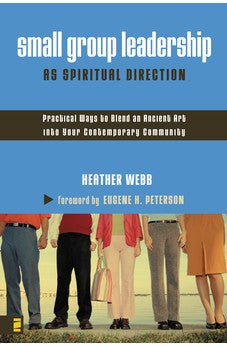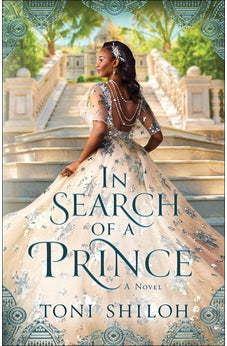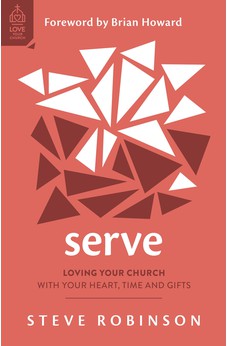Three Views on Christianity and Science (Counterpoints: Bible and Theology)
3 Great Reasons to Buy from Us:
When it comes to relating Christianity to modern Western culture, perhaps no topic is more controversial than the relationship between Christianity and science.Outside the church, the myth of a backwards, anti-science Christianity is very common in popular culture and can poison the well before a fruitful dialogue can begin. Within the church, opposing viewpoints on the relation between Christianity and science often lead to division.Three Views on Christianity and Science addresses both types of conflict. Featuring leading evangelical scholars, this book presents three primary options for the compatibility of Christianity and science and models constructive dialogue on the surrounding controversial issues.The highlighted contributors and their views are: Michael Ruse, representing the Independence View - When functioning correctly, science and Christian theology operate independently of each other, seeking answers to different questions through different means. Alister McGrath, representing the Dialogue View - Though the natural sciences and Christian philosophy and theology function differently, they can and should inform each other. Bruce L. Gordon, representing the Constrained Integration View - Science, philosophy, and theology all contribute to our understanding of reality. Their interactions constrain each other and together present an optimally coherent and integrated picture of reality.By engaging with the viewpoints of the contributors, readers will come away with a deeper understanding of the compatibility of science and Christianity, as well as of the positions of those who disagree with them. Scholars, students, pastors, and interested laypeople will be able to make use of this material in research, assignments, sermons and lessons, evangelism, and apologetics.The Counterpoints series presents a comparison and critique of scholarly views on topics important to Christians that are both fair-minded and respectful of the biblical text. Each volume is a one-stop reference that allows readers to evaluate the different positions on a specific issue and form their own, educated opinion.About the AuthorPaul Copan (PhD, Marquette University) is the Pledger Family Chair of Philosophy and Ethics at Palm Beach Atlantic University in West Palm Beach, Florida. In addition to authoring many journal articles, he has written or edited over thirty books in philosophy, theology, and apologetics, including Creation Out of Nothing: A Biblical, Philosophical, and Scientific Exploration, and has served as President of the Evangelical Philosophical Society. He and his wife, Jacqueline, have six children and live in West Palm Beach.Christopher Reese is a freelance writer and the managing editor of The Worldview Bulletin. He cofounded the Christian Apologetics Alliance and is a general editor of The Dictionary of Christianity and Science (Zondervan, 2017).Michael Ruse was formerly the Lucyle T. Werkmeister Professor of Philosophy and the Director of the History and Philosophy of Science Program at Florida State University. He is a philosopher and historian of science, mainly evolutionary theory, and has been much involved in fighting Creationism. The author or editor of over fifty books, he is the founding editor of the journal Biology and Philosophy. A sometime Guggenheim Fellow and Gifford Lecturer, a Fellow of the Royal Society of Canada, he is the recipient of four honorary degrees and other honors.Alister E. McGrath is a historian, biochemist, and Christian theologian born in Belfast, Northern Ireland. McGrath, a longtime professor at Oxford University, now holds the Chair in Science and Religion at Oxford. He is the author of several books on theology and apologetics, including Christianity's Dangerous Idea and Mere Apologetics. He lives in Oxford, England and lectures regularly in the United States.Bruce L. Gordon (PhD, Northwestern University) is Associate Professor of the History and Philosoph
When it comes to relating Christianity to modern Western culture, perhaps no topic is more controversial than the relationship between Christianity and science.Outside the church, the myth of a backwards, anti-science Christianity is very common in popular culture and can poison the well before a fruitful dialogue can begin. Within the church, opposing viewpoints on the relation between Christianity and science often lead to division.Three Views on Christianity and Science addresses both types of conflict. Featuring leading evangelical scholars, this book presents three primary options for the compatibility of Christianity and science and models constructive dialogue on the surrounding controversial issues.The highlighted contributors and their views are: Michael Ruse, representing the Independence View - When functioning correctly, science and Christian theology operate independently of each other, seeking answers to different questions through different means. Alister McGrath, representing the Dialogue View - Though the natural sciences and Christian philosophy and theology function differently, they can and should inform each other. Bruce L. Gordon, representing the Constrained Integration View - Science, philosophy, and theology all contribute to our understanding of reality. Their interactions constrain each other and together present an optimally coherent and integrated picture of reality.By engaging with the viewpoints of the contributors, readers will come away with a deeper understanding of the compatibility of science and Christianity, as well as of the positions of those who disagree with them. Scholars, students, pastors, and interested laypeople will be able to make use of this material in research, assignments, sermons and lessons, evangelism, and apologetics.The Counterpoints series presents a comparison and critique of scholarly views on topics important to Christians that are both fair-minded and respectful of the biblical text. Each volume is a one-stop reference that allows readers to evaluate the different positions on a specific issue and form their own, educated opinion.About the AuthorPaul Copan (PhD, Marquette University) is the Pledger Family Chair of Philosophy and Ethics at Palm Beach Atlantic University in West Palm Beach, Florida. In addition to authoring many journal articles, he has written or edited over thirty books in philosophy, theology, and apologetics, including Creation Out of Nothing: A Biblical, Philosophical, and Scientific Exploration, and has served as President of the Evangelical Philosophical Society. He and his wife, Jacqueline, have six children and live in West Palm Beach.Christopher Reese is a freelance writer and the managing editor of The Worldview Bulletin. He cofounded the Christian Apologetics Alliance and is a general editor of The Dictionary of Christianity and Science (Zondervan, 2017).Michael Ruse was formerly the Lucyle T. Werkmeister Professor of Philosophy and the Director of the History and Philosophy of Science Program at Florida State University. He is a philosopher and historian of science, mainly evolutionary theory, and has been much involved in fighting Creationism. The author or editor of over fifty books, he is the founding editor of the journal Biology and Philosophy. A sometime Guggenheim Fellow and Gifford Lecturer, a Fellow of the Royal Society of Canada, he is the recipient of four honorary degrees and other honors.Alister E. McGrath is a historian, biochemist, and Christian theologian born in Belfast, Northern Ireland. McGrath, a longtime professor at Oxford University, now holds the Chair in Science and Religion at Oxford. He is the author of several books on theology and apologetics, including Christianity's Dangerous Idea and Mere Apologetics. He lives in Oxford, England and lectures regularly in the United States.Bruce L. Gordon (PhD, Northwestern University) is Associate Professor of the History and Philosoph






























